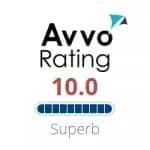





A National Disability Law Firm
We are dedicated to helping people nationwide get the disability benefits they deserve. We handle group long-term disability (LTD) claims, individual disability insurance policy claims, ERISA claims, and Social Security disability claims. We understand how frustrating it can be to fight with your insurance company or the SSA to get the benefits you deserve. Led by disability attorney Nick Ortiz, our team is ready to fight for you.
For disability insurance claims, we help with administrative appeals and lawsuits against LTD insurance companies. We offer a free case evaluation to those whose long-term disability benefits have been unfairly denied or terminated. For Social Security Disability claims, we help with the initial application and, if necessary, will request a reconsideration and represent you at a hearing before an Administrative Law Judge.
You have enough worries about your medical treatment, bills, and other complications caused by your loss of income and deteriorating health. If you’ve been wrongly denied disability benefits, you need an experienced disability attorney to fight back and protect your rights. Nick Ortiz and the experienced legal team at the Ortiz Law Firm can help you get the benefits you deserve.
Why Choose Ortiz Law Firm?
During an already difficult time both personally and financially, finding and hiring an attorney can seem overwhelming. If an insurance company or the Social Security Administration has denied your benefits, you need a knowledgeable and aggressive advocate who can take up your fight and get you the compensation you deserve, and you have come to the right place. While there may be other attorneys who make promises, Nick Ortiz and his team at the Ortiz Law Firm offer every client:
- Compassion: Mr. Ortiz began his legal career working for an insurance company, but he quickly realized that he wanted to be on the other side, fighting to protect the injured. Since 2005, he has dedicated himself to representing claimants during this emotional and challenging time. As his former clients attest, he is compassionate and sensitive to the unique needs of each client.
- Flexibility: As a small firm, the Ortiz Law Firm operates with extreme efficiency. We are not the right firm for every case. Each year, we carefully select a limited number of disability cases to handle and provide personalized service to our clients.
- Experience: We represent only long-term disability and Social Security disability claimants. Our Pensacola disability law firm’s limited focus has allowed us to develop extensive and valuable experience, which is unmatched by general practitioners. We have handled thousands of long-term disability and Social Security disability claims throughout the United States from our Northwest Florida office.
- Results: During this already difficult time, pursuing a disability claim can be overwhelming. We understand this, and our goal is to obtain the maximum benefits and compensation each client deserves. When faced with mounting medical bills, lost income, and personal stress, you can count on us to ease some of that burden and fight aggressively to protect your future.

Tory Nelson and the Ortiz Law Firm are awesome! They truly were concerned and attentive to my case. I never felt like just a case file number, but a friend. Forget the rest. Go with the best, Ortiz Law Firm… They are the David for your Goliath!!!


This law firm is amazing. They take the time to listen to your story and make it their own. From there, they will fight for you to help you get what you deserve. An amazing law firm that cares about your dignity and well-being.


Nick Ortiz and Tory Nelson are super awesome! They have both been helping me thru a very difficult time in my life. Tory Nelson was always the pleasant voice on the other end of the line when I felt hopeless. Very encouraging and very respectful! I would highly recommend them for all of your disability needs. They have stuck right there with me!

The Ortiz Law Firm Difference
Disability Insurance Companies We Fight
We have recovered millions of dollars in wrongfully denied insurance benefits. We have litigated claims against all of the major insurance companies, including New York Life, Lincoln Financial, Reliance Standard, Prudential, The Hartford, The Standard, MetLife, Guardian, Unum, Sun Life, and others. Although the insurance companies have billions of dollars of resources behind them, we do not fear a single one of them.
Some insurance companies hire outside claims administrators to review and decide claims. We also handle claims against “first-party” plan administrators and against “third-party” claims administrators, such as Aon Hewitt, Broadspire, and Sedgwick.

